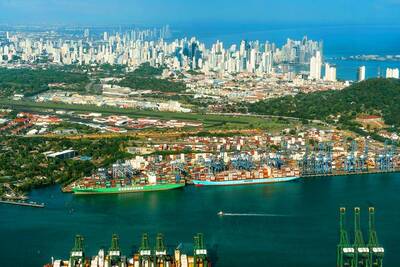Ford Motor Co admitted on Thursday there was a problem affecting braking in some of its hybrid vehicles, and offered a software fix following a wave of problems affecting Japanese rival Toyota.
The US automaker said it was offering the fix to owners of 2010-model Ford Fusion Hybrids and Mercury Milan Hybrids to update software of the regenerative brake system.
“We have received reports that some drivers have experienced a different brake feel when the hybrid’s unique regenerative brakes switch to conventional hydraulic braking,” Ford said.
“While the vehicles maintain full braking capability, customers may initially perceive the condition as loss of brakes,” it said.
Ford said the two cars’ brake system “maintains full conventional brakes and full [antilock] ABS function even as the customer sees visual indicators and hears a chime.” But it said the software upgrade “will reduce unnecessary occurrences of the vehicle switching from regenerative braking to conventional hydraulic brakes.”
Ford said customers with affected vehicles would receive a notice in the mail, asking them to bring in the cars to be reprogrammed at dealers at no charge.
Ford’s announcement followed a review by Consumers Union, which does its own testing and reported a “mushy” brake feel on the Fusion, adding: “the brake pedal needs to be pushed just over an inch farther down than normal before the conventional hydraulic system applies the brakes” and that its test driver “thought he had no brakes.”

LIMITS: While China increases military pressure on Taiwan and expands its use of cognitive warfare, it is unwilling to target tech supply chains, the report said US and Taiwan military officials have warned that the Chinese People’s Liberation Army (PLA) could implement a blockade within “a matter of hours” and need only “minimal conversion time” prior to an attack on Taiwan, a report released on Tuesday by the US Senate’s China Economic and Security Review Commission said. “While there is no indication that China is planning an imminent attack, the United States and its allies and partners can no longer assume that a Taiwan contingency is a distant possibility for which they would have ample time to prepare,” it said. The commission made the comments in its annual

DETERMINATION: Beijing’s actions toward Tokyo have drawn international attention, but would likely bolster regional coordination and defense networks, the report said Japanese Prime Minister Sanae Takaichi’s administration is likely to prioritize security reforms and deterrence in the face of recent “hybrid” threats from China, the National Security Bureau (NSB) said. The bureau made the assessment in a written report to the Legislative Yuan ahead of an oral report and questions-and-answers session at the legislature’s Foreign Affairs and National Defense Committee tomorrow. The key points of Japan’s security reforms would be to reinforce security cooperation with the US, including enhancing defense deployment in the first island chain, pushing forward the integrated command and operations of the Japan Self-Defense Forces and US Forces Japan, as

IN THE NATIONAL INTEREST: Deputy Minister of Foreign Affairs Francois Wu said the strengthening of military facilities would help to maintain security in the Taiwan Strait Japanese Minister of Defense Shinjiro Koizumi, visiting a military base close to Taiwan, said plans to deploy missiles to the post would move forward as tensions smolder between Tokyo and Beijing. “The deployment can help lower the chance of an armed attack on our country,” Koizumi told reporters on Sunday as he wrapped up his first trip to the base on the southern Japanese island of Yonaguni. “The view that it will heighten regional tensions is not accurate.” Former Japanese minister of defense Gen Nakatani in January said that Tokyo wanted to base Type 03 Chu-SAM missiles on Yonaguni, but little progress

IN THE MIDDLE: Some of the lawmakers defended the trip as an opportunity for investment, cooperation and to see models that could help modernize Panama A planned trip by some Panamanian lawmakers to Taiwan has unleashed the latest diplomatic spat with China as the Central American country tries to navigate the turbulent waters between the Asian superpower and the US. The Panamanian Ministry of Foreign Affairs and the US ambassador to the country on Wednesday criticized China’s diplomats in Panama for asking the lawmakers to cancel their trip to Taiwan, with the ministry accusing the Chinese embassy of “meddling” in its internal affairs. That followed comments from Panamanian President Jose Raul Mulino a week earlier saying that the planned Taiwan trip did not have the approval of